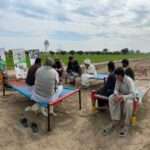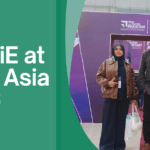News
Biodiversity plays a vital role in securing food and fibre- story of Cotton
Biodiversity is essential for sustainable agriculture, playing a crucial role in maintaining ecosystem balance, improving soil health, and supporting pollinators. However, in cotton production, biodiversity faces significant threats due to monocropping, excessive pesticide use, and habitat destruction. These challenges not only impact pollinators and beneficial insects but also reduce soil fertility and resilience against climate change.

Top News
Recognizing these issues, SAWIE Ecosystems (Pvt.) Ltd. actively participated in the “Beyond Cotton Fields: A Dialogue on Biodiversity for Sustainable Agriculture” event held on March 19, 2025, at Pearl Continental Hotel, Lahore.
Representing SAWIE, Dr. Awais Khan, Natural Capital and Biodiversity Lead, contributed to the panel discussion “Biodiversity at the Crossroads: Balancing Agriculture, Innovation, and Conservation.” The discussion focused on collaborative strategies, nature-based solutions, and policy interventions to integrate biodiversity conservation into Pakistan’s agricultural landscape.
A key takeaway was the critical role of pollinators in sustaining food and fiber production while restoring ecosystem services. To support pollinators, the panel emphasized the importance of intercropping, agroforestry, and leguminous strip cropping as effective regenerative agriculture practices.
SAWIE is actively collaborating with BioDScan, a UK-based organization, to monitor pollinators and biodiversity in agricultural settings. The discussion also highlighted the urgent need to promote Integrated Pest Management (IPM) and regenerative agriculture practices to enhance biodiversity and reduce reliance on chemical inputs. SAWIE is at the forefront of leading Regenerative Agriculture Cotton Clusters, driving sustainable cotton production through eco-friendly farming techniques.
SAWIE’s participation reaffirmed its commitment to sustainable farming practices that balance conservation with economic and environmental resilience.



